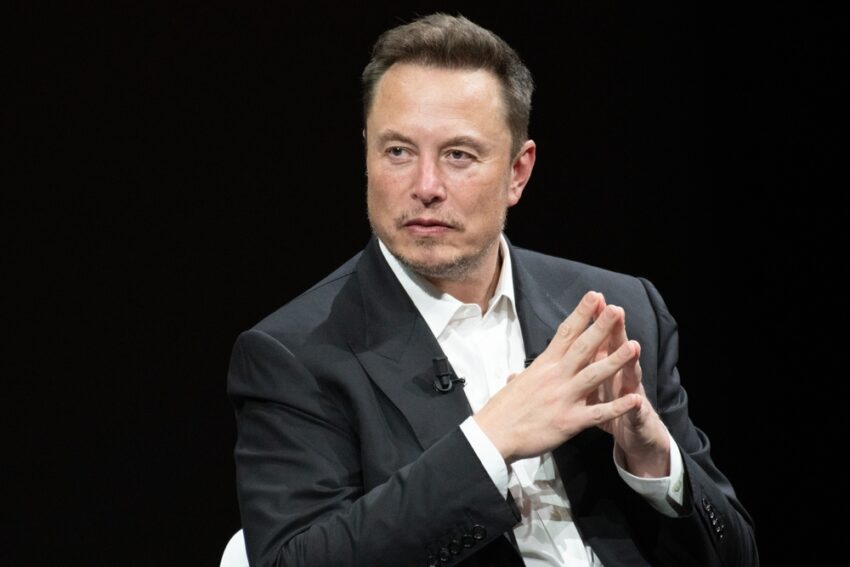Although carrying similar names, Tesla chief executive Elon Musk ruled out a link between the Department of Government Efficiency (DOGE) and meme coin king Dogecoin cryptocurrency (DOGE).
Key Highlights
- Elon Musk clarified that the US Department of Government Efficiency (DOGE) harbors no plans to utilize the Dogecoin crypto.
- Musk explains that the similarity in the names is coincidental despite the website briefly displaying the Dogecoin meme coin logo following Trump’s inauguration.
- The DOGE targets improving the US government efficiency by 15%, with recent efforts having yielded $130 billion since January.
- Musk announced he would exit the DOGE after a $1 trillion cut on the federal deficit.
- The move to minimize the expenditure on federal agencies and programs has triggered lawsuits to challenge the DOGE authority.
Elon Musk cleared the US Department of Government Efficiency (DOGE) role, ending the rumors that the agency plans to incorporate the Dogecoin cryptocurrency. The comments emerged in his Sunday address at Wisconsin’s America PAC town hall.
US Not Adopting Dogecoin
Musk ruled out plans for the US government to adopt Dogecoin in his speech. The tech billionaire indicated that it was coincidental for the newly created department and Dogecoin to have similar names, with the former aiming to enhance government operations. He considers the naming arose from branding and not the crypto connections. Musk confessed his initial plans to label it the Government Efficiency Commission. He indicated the name is boring only for the internet suggestion to name it the Department of Government Efficiency.
The similarity in the two names fueled the rumors that the US government would adopt Dogecoin. The speculation was fueled by the DOGE website briefly displaying the Dogecoin logo for several hours following the January 20 inauguration. The logo added weight to the speculation that the meme coin will have a key role within the new agency. This news elevated Dogecoin up 14%, with its market cap testing the $58 billion market value.
Musk has in the past portrayed Dogecoin links through his promotion posts on X (formerly Twitter) and public statements. On one occasion, Musk defended the inflationary model by Dogecoin as a necessary feature to support daily transactions.
The past efforts to promote Dogecoin have drawn the attention of federal regulatory agencies. Besides regulators, Musk faced a market manipulation lawsuit by the US Securities and Exchange Commission (SEC), citing Dogecoin-related activities.
Cost-Cutting Mission
The DOGE department is central to the Trump administration’s decision to downsize the government. Notably, the government is eyeing a streamlining of operations, making it 15% more efficient. Its efforts have seen the department save $840 per taxpayer, translating to $130 billion.
Musk’s team targets cost-cutting to credit card usage, where 4.6 million units are issued against 2.3 – 2.4 million employees. The team profiled the oversight as absurd, pushing for immediate cuts and mass layoffs.
The agencies affected by the purge include the US Agency for International Development (USAID), the Social Security Administration (SSA), and the Consumer Financial Protection Bureau (CFPB), which have suffered substantial funding cuts.
Musk’s exact role in the department is unclear, although the White House considers him a senior advisor. Although lacking policy authority, Trump profiles him as the department leader. Musk expects a $1 trillion reduction in the federal deficit in 130 days. This timeline coincides with a late May for Musk’s tenure to end.
Musk profiles his input as a revolution to strengthen America’s financial position. The efficiency-driven approach has won many supporters, with critics alleging DOGE power but with insufficient oversight. Additionally, several lawsuits are challenging its authority to execute the sweeping changes.
The critics indicated that the Musk team cut programs and contracts without congressional approval. The Tesla boss dismissed the claims, suggesting the team considered all decisions. He confessed to not taking compensation but instead clarified his involvement was motivated by the need for government reforms.
Editorial credit: Frederic Legrand – COMEO / Shutterstock.com

